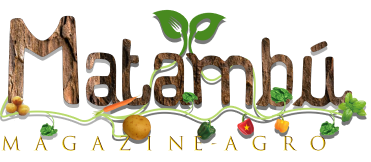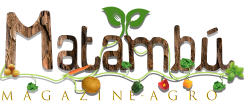[ad_1]
Prothrive Astute Heights CEO Oluyemisi Obe (left) and an instance of the corporate’s merchandise (proper).
Pap is a neighborhood porridge constructed from fermented maize, sorghum or millet and eaten in lots of West African nations. In Nigeria, it’s generally often called akamu, ogi or koko and generally additionally used as cereal for infants. But unhygienic preparation strategies and a brief shelf life discourage many individuals from shopping for by means of casual retail channels.
Oluyemisi Obe had the identical drawback and arrange a food-processing firm to provide high-quality pap with an extended shelf life. In 2015, with the assist of her husband, she established Prothrive Astute Heights in Lagos, making the model Grandios Pap from white and yellow maize and brown sorghum.
“I thought about food processing when my children were babies because each time I tried to introduce them to cereal, I would find just one variety. I realised there was an opportunity to produce something readily available to other mothers. That was how I came about the idea and the research started,” she informed How we made it in Africa.
Following additional dialogue with a enterprise advisor, Obe found demand, particularly amongst girls, who wished the comfort of ready-to-make high-quality dry pap.
“Because of the tedious process, many people cannot produce it independently. They also don’t want to buy from local producers as they don’t trust the production process.”
Obe began by processing 50 kg of the corporate’s maiden product, Grandios Pap each day to promote out of her automobile boot after church service. Seven years later, it now produces a number of tonnes to satisfy every day demand.
Facing challenges and rising the enterprise
Expanding the enterprise didn’t come as simple as she had imagined, regardless of a prepared marketplace for the product.
Obe and her husband initially funded the enterprise with their financial savings and, for about 18 months, she didn’t earn a wage. The enterprise additionally went by means of lots of trial and error with gear. To handle this, it had many handbook and labour-intensive procedures in place, which discouraged staff and consequently, employees turnover was excessive.
The largest problem, nevertheless, was getting approval from the National Agency for Food and Drug Administration and Control (NAFDAC), a Nigerian regulatory company underneath the Federal Ministry of Health. Several shops initially rejected the product as a result of it didn’t have regulatory approval. However, by modelling the manufacturing facility and amenities in keeping with the company pointers, they obtained approval inside an affordable interval.
The firm began by sourcing maize from native markets however used third-party suppliers as the necessity grew.
“Right now, we go directly to farmers and farmers’ markets. We also partner with HarvestPlus, which works with farmers to grow high-quality maize. We get our raw materials from farmers they have trained and supported and no longer use third-party suppliers,” she reveals.
In 2017, two years after manufacturing started, the corporate obtained a three-year mortgage from the Lagos State Employment Trust Fund. Between 2019 and 2021, it additionally obtained grants from totally different nationwide and worldwide businesses together with funds from a World Bank-assisted Federal Government of Nigeria mission; a Global Alliance for Improved Nutrition grant; and funding from the Nigerian Export Promotion Council (NEPC).
“These funds helped the business to grow and achieve some of its goals. Several of the grants were for equipment, and we made sure we bought these. Others were for working capital support and raw materials,” recollects Obe.
Cultivating a distribution community
From promoting on to prospects in church buildings, mosques and different public locations, their workforce marketed the merchandise to supermarkets after securing regulatory approval.
Over time, the corporate began working with distributors and brokers and created a community for distribution. “We increased the number of distributors and retailers by building our relationships. We also created an online presence through our website and social media platforms. The cost of offline marketing for small businesses is enormous, so, we had to learn how to use social media for our marketing and it has paid off,” she explains.
During the final seven years, the enterprise has grown by over 3,000% and sells to main supermarkets in Nigeria, together with Shoprite, Spar, Ebeano, Justrite and different retailers throughout the nation.
Some prospects have independently taken the merchandise to unlikely nations comparable to China and Japan. “Grandios Pap is sold in the UK and the US, which are regular markets for some made-in-Nigeria products. But when you hear people talking about your products in other places, it shows your marketing and sales efforts are yielding results.
“When we started, there was no standard for pap. Being invited to join a committee by the Standards Organisation of Nigeria to discuss and recommend standards for packaging was a major milestone,” she provides.
High e-commerce logistics prices
According to the CEO, Nigeria’s e-commerce sector was in its infancy when the corporate started, however over time, it has advanced. People now promote by way of their web sites and social media, and plenty of micro, small and medium enterprises profit.
Despite the increase in e-commerce and the advantages to companies, the logistics value stays a dampener. “Delivery costs are often higher than the product itself. So, if there is a way to reduce that, it will help e-commerce grow faster,” she provides.
Expansion plans throughout Africa
Obe has loads of plans for progress for Grandios Pap, each within the brief and long run. Immediate plans embrace creating sorts of the present merchandise and different conventional meals in smaller pouches for comfort.
But her most necessary purpose is to be listed on the Nigerian Stock Exchange. “We are working on listing. I know there will come a time when I would want to retire but I want the company to continue.”
She additionally plans to work with distributors in different African nations and one among her goal markets is South Africa. She says it appears attention-grabbing as a result of South Africans additionally devour pap like West Africans however in a extra stable kind.
Related articles
[ad_2]
Source link










